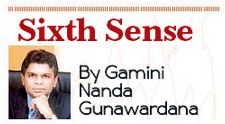Reply To:
Name - Reply Comment
Last Updated : 2024-04-19 05:45:00
 Although leaders were in existence from the pre-historic era of mankind, ‘leadership’ as a concept has gained a great deal of attention only i n recent years. In the business world, at academic institutions, or in the community, time and large sums of money are devoted in developing effective leaders. Why? Because, good leadership is the most critical one factor that fuels the progress in the world, be it in a business, organisation, movement or society at large.
Although leaders were in existence from the pre-historic era of mankind, ‘leadership’ as a concept has gained a great deal of attention only i n recent years. In the business world, at academic institutions, or in the community, time and large sums of money are devoted in developing effective leaders. Why? Because, good leadership is the most critical one factor that fuels the progress in the world, be it in a business, organisation, movement or society at large.

Add comment
Comments will be edited (grammar, spelling and slang) and authorized at the discretion of Daily Mirror online. The website also has the right not to publish selected comments.
Reply To:
Name - Reply Comment
On March 26, a couple arriving from Thailand was arrested with 88 live animal
According to villagers from Naula-Moragolla out of 105 families 80 can afford
Is the situation in Sri Lanka so grim that locals harbour hope that they coul
A recent post on social media revealed that three purple-faced langurs near t